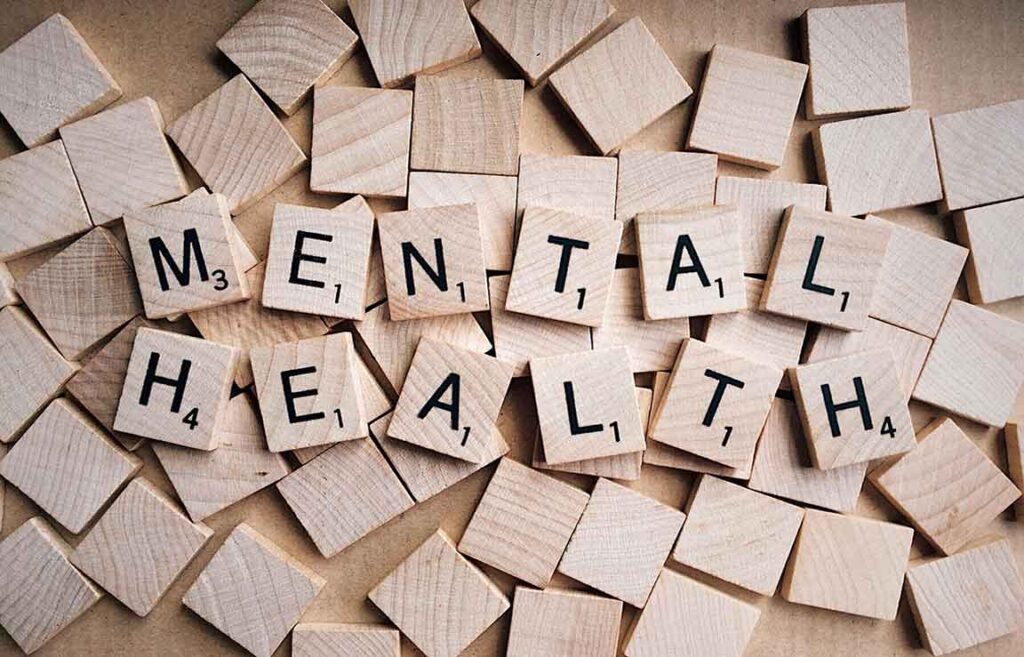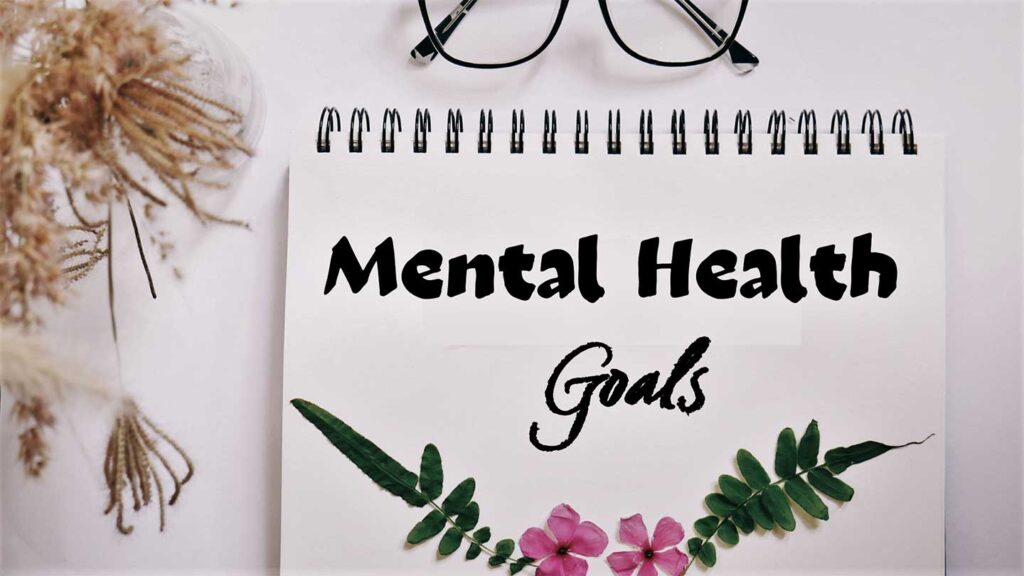By Lovlyn
Do you ever wonder if mental health goals are necessary when setting goals for the new year?
2024 is around the corner, and you’ve probably started writing down your goals for the upcoming year. You’re thinking of all the areas of your life that need improvement—perhaps your finances, your career, your relationships, and much more. Yet, you seem to forget the most important one: your mental health.
If you are wondering why you should have mental health goals or searching to find mental health goals that can transform your life in the new year, then keep reading.
What Are Mental Health Goals?
Mental health goals are simply the goals you set for the benefit of your mental well-being. These are actions and efforts you take for your personal development.
Mental health goals are primary objectives designed to help you manage your thoughts, emotions, and behaviours in a way that fosters mental stability, resilience, and overall psychological health.
Furthermore, mental health goals can vary widely depending on your unique needs and circumstances, but they often include elements such as self-care, stress management, depression and anxiety management, setting boundaries, and much more.
Why You Should Prioritize Mental Health Goals
Setting mental health goals is a crucial step in your journey toward improved well-being and emotional balance. By defining and working toward these objectives, you create a roadmap for your mental health.
These goals keep you motivated, ultimately leading to increased mental stability and resilience.
Here are five reasons why you need to set mental health goals
- Self-awareness: The process of setting and pursuing mental health goals fosters self-awareness. It encourages you to reflect on your thoughts, emotions, and behaviours, deepening your understanding of yourself and your triggers.
- Tracking Progress: Over time, mental health goals enable you to track your progress and celebrate your achievements. This sense of accomplishment can boost your self-esteem and reinforce the positive changes you’re making.
- Proactive Growth: Rather than reacting to mental health issues as they arise, having goals encourages you to take a proactive approach to your well-being. It empowers you to make choices that support your mental health daily.
- Mental Stability and Resilience: Working on your mental health is an investment in your overall stability and resilience. Mental health goals can help you develop the skills and coping mechanisms necessary to navigate life’s challenges with greater ease.
- Personalized Approach: Your mental health goals are unique to you. They reflect your individual needs, circumstances, and aspirations. This personalization ensures that you’re addressing the areas of your mental health that matter most to you, leading to more meaningful and lasting changes.
By investing in your mental health through goal-setting, you’re taking a significant step toward a happier and more resilient you.

50 Mental Health Goals You Should Have for 2024
1. Build a greater relationship with God. Spend more dedicated time in prayer and meditation.
2. Let gratitude be your daily guide. Keep a gratitude journal to focus on positive aspects of life.
3. Self-care should be an “everyday necessity”. Set aside time for exercise and relaxation.
Also Read: How To Practice Self-care Even When You Don’t Feel Like It
4. Reduce the use of devices before bedtime so as to create a conducive environment for mental relaxation and improved sleep quality.
5. Stay up to date with mental health resources to stay informed about new tools and strategies that can contribute to your overall well-being.
6. Establish and respect your personal values and beliefs.
7. Develop a personal crisis management strategy such as reactive steps to navigate challenging situations.
8. Be kind and do good to others for it increases your health and happiness.
9. Foster a positive and supportive internal dialogue and challenge negative thoughts patterns.
10. Learn to set and enforce healthy boundaries.
11. Learn to say “No” if it affects your peace of mind.
12. Reduce excessive caffeine and alcohol consumption as it can positively contribute to improved sleep quality and enhanced mood stability.
13. Prioritize work-life balance for mental well-being so as not to get overwhelmed.
14. Practice self-reflection and introspection to help keep yourself in check.
15. Pursue hobbies that engage your creative side and foster your sense of fulfillment.
Also Read: 10 Exciting Things You Can Do During Your “Me Time”.
16. Celebrate your achievements, no matter how small.
17. Learn to identify and manage triggers, such as stressors or challenging situations.
18. Develop assertiveness and communication skills to navigate interpersonal relationships more effectively and express your needs with clarity and confidence.
19. Create a comfortable and organized living space to promote a sense of calm and well-being in your daily life.
20. Focus on building emotional intelligence to enhance your understanding of emotions, both in yourself and others.
21. Actively engage in self-improvement activities, such as reading self-help books, to improve personal growth.
22. Attend mental health workshops or seminars to educate yourself and gain valuable insights for fostering a healthier and more resilient mind.
23. Manage and reduce symptoms of anxiety by implementing effective coping strategies and seeking support when needed.
24. Build a support network of trusted individuals to share experiences, receive guidance, and cultivate a sense of connection and understanding.
25. Work on anger management and emotional control to cultivate a calmer and more balanced response to difficult situations.
26. Prioritize regular check-ups and health assessments.
27. Set achievable and realistic personal and professional goals.
28. Have a sleep schedule and get enough quality sleep each night.
29. Volunteer and give back to your community to foster a sense of purpose in your own life.
30. Maintain a balanced diet and eat nutrient-rich foods for overall health.
31. Seek therapy or counseling if you’re struggling with your mental health or as needed.
32. Practice daily mindfulness meditation and live in the moment.
33. Build a positive self-image to enhance your self-esteem and foster a more confident sense of self.
34. Be true to yourself and make decisions that are best for your mental well-being.
35. Use your time on things that matter most to you and are productive, maximizing your efficiency and overall output.
36. Limit screen time and establish clear boundaries with technology use to promote a healthier balance in your daily life.
37. Limit negative influences and surround yourself with positivity and meaningful connection.
38. Practice affirming positivity into your life and saying good things about yourself and others.
Also Read: 50 Powerful Affirmations You Need To Transform Your Mental Health
39. Let go of grudges, forgive yourself for past mistakes, and release any resentment towards those who have wronged you.
40. Express love and appreciation to those who matter and really mean it.
41. Read inspirational material and explore literature that promotes positive thinking.
42. Explore new perspectives. Be open-minded and willing to consider different viewpoints.
43. Learn to embrace imperfections and accept that nobody, including yourself, is perfect.
44. Have a healthy routine and start your day with activities that set a positive tone.
45. Move your body, connect with nature and spend time outdoors to refresh and rejuvenate.
46. Be willing to seek guidance in areas of your life where you may need assistance, such as your spiritual life, career, or relationships.
47. Learn to delegate, share responsibilities, or ask for help when needed to prevent overwhelm.
48. Laugh more often and engage in activities that bring you joy.
49. Practice healthy expression of emotions so as to avoid bottling up and nurturing resentment.
50. Be your authentic self; don’t pretend to be someone you’re not to please others.
Conclusion
As we step into the new year 2024, it’s the perfect time to set intentions that prioritize our mental well-being. The 50 mental health goals outlined above offer a diverse range of approaches to cultivating a healthier mind, body, and spirit.
Whether it’s building stronger connections, embracing self-love, or fostering a positive mindset, these goals serve as a roadmap for a more fulfilling and balanced life in 2024.
Remember, each goal is a stepping stone toward a happier and healthier you. Choose the ones that resonate most, integrate them into your daily life, and let the journey to improved mental well-being begin.
Here’s to a year of growth, resilience, and joy!
DISCLAIMER:
Some of the links in this blog post are affiliate links, which means I may earn a commission if you make a purchase through them. However, this comes at no extra cost to you.
The content of this blog is not intended to be a substitute for professional medical advice, diagnosis, or treatment. It is provided for general information only.
RECOMMENDATION
If you need help or know someone with their mental health or mental illness, check out the resource page for mental health resources.













